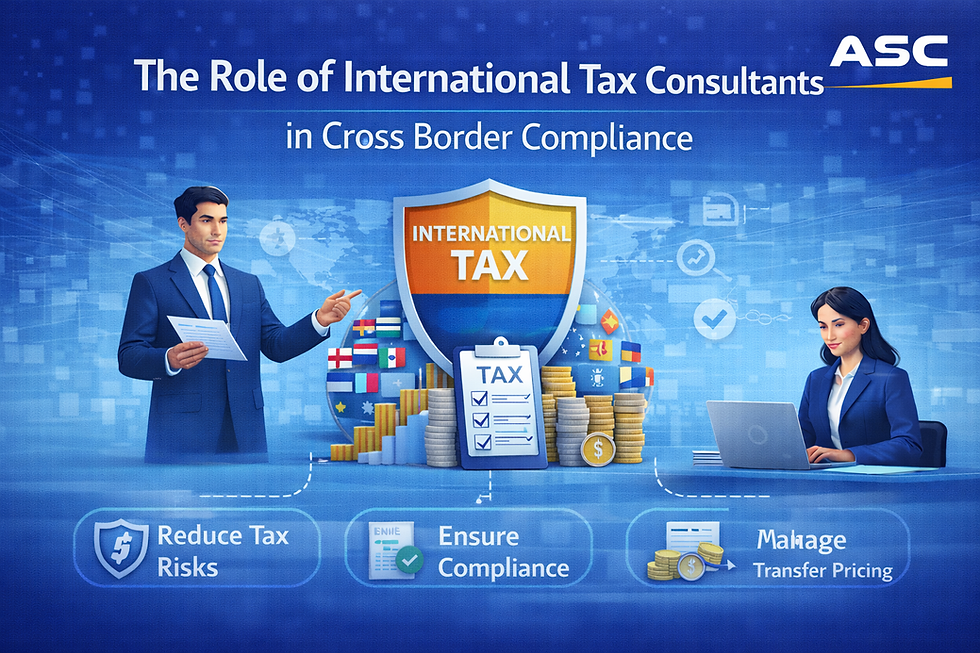Top Advantages and Disadvantages of GST in India?
- ASC Group
- Jul 2, 2024
- 2 min read
In India, the Goods and Service Tax (GST Consultant) was introduced on 1 July 2017. Its purpose is to create a uniform system of taxation for all goods and services. It aims to eliminate the cascading effects of different taxes and consolidate the business onto a single system to pay taxes quickly.
What is GST?
The GST services in India is perceived as a replacement for all indirect taxes levied on products and services across the country. GST is an indirect tax which will be a single tax domain at the national level. The GST Return Filing will be payable at the end consumption, at a uniform rate. It has a wide scope in India.
Here are some of the benefits and disadvantages that GST has to offer:
The Top Benefits of GST Return Filing:
1. Eliminate cascading taxes:
GST Return Filing was introduced as a way to bring all indirect taxes together under one roof. GST Consultant will eliminate all cascading taxes or taxation on the tax process. GST absorbs the tax liability at each step and is applied to goods and services purchased.
2. Increase the threshold limit:
The minimum threshold for registration has been increased by the GST rules. Prior to the implementation of the GST rules, businesses with a turnover exceeding 5 lakhs were required to pay VAT. This threshold has been increased from 5 lakhs to 20 lakhs under GST. It will benefit small vendors.
3. Simplicity is the Best:
In India, the Goods and Service Tax is replacing 17 indirect laws. The new GST law will be easier to visualize.
4. Type of investment boost:
The new tax laws in India do not allow individuals to claim input tax credit on capital goods. With GST Consultant, however, individuals can take advantage of the input tax credit for capital goods. This will allow the investment to increase with a 6% expected rise.
GST's Top Negatives:
1. Increased Operational Costs:
In India, businesses must either hire GST professionals or train their employees on GST Consultant rules. It will increase costs for small businesses.
2. Costlier Service:
Prior to the introduction of GST service in India tax was 15 percent. Now, it is increased to 18 – 20%. As a result, many services are more expensive, such as banking, airline, and telecom. This is the major disadvantage of GST in the long term.
3. The businessman's dilemma:
The GST rules state that the central and state governments are responsible for the management of businesses, as they are legally bound to do so. ASC Group offers the best GST consultancy services all over India. The Goods and Service Tax Act came in the Indian Parliament on 29th March 2017 and the nation got it into effect on 1st Jul 2017.
4. Non-GST compliance:
If you don't follow the rules, penalties will be charged. For more information on penalties, please contact by clicking here.




Comments